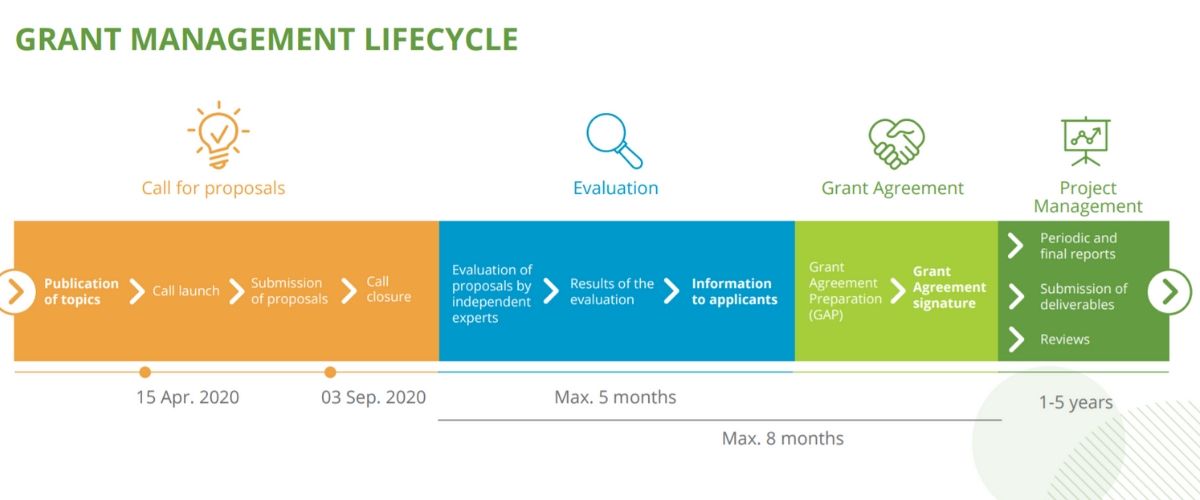
The objectives of the proposed JTI on bio-based industries are to:
There are 4 strategic orientations ( 16 topics: 5 RIAs, 4 CSAs, 4 DEMOs, 3 FLAGs. ):
Project lifecycle (source: Call booklet):

Source: www.bbi-europe.eu
As a basic rule, to be eligible, costs must be:
Actual and incurred by the beneficiary
Incurred during the project duration (except for costs of the final report)
Indicated in the estimated budget in Annex 2 (budget of the action)
Incurred in connection with the action as described in Annex 1 (proposal description)
Reasonable and justified, and compliant with the principle of sound financial management
Identifiable and verifiable, in particular recorded in the beneficiary’s account (according to
accounting standards of the beneficiary’s country and to usual cost accounting practices).
Five cost categories are considered:
A. Direct personnel costs
B. Direct costs of subcontracting
C. Costs of providing financial support to third parties
D. Other direct costs
D.1 Travel costs and related subsistence allowances
D.2 Depreciation costs of equipment, infrastructure and assets or costs of renting and
leasing equipment, infrastructure and assets (see also Q 3.1.6)
D.3 Costs of other goods and services (see also Q 3.1.7)
D.4 Capitalised and operating costs of large research infrastructure (see also Q 3.1.8)
E. Indirect costs
Bio-based Industries Joint Undertaking (BBI JU):
e-mail: info@bbi.europa.eu
International Cooperation Center:
phone: 81 537 54 58/54 98
e-mail: cwm@umcs.pl